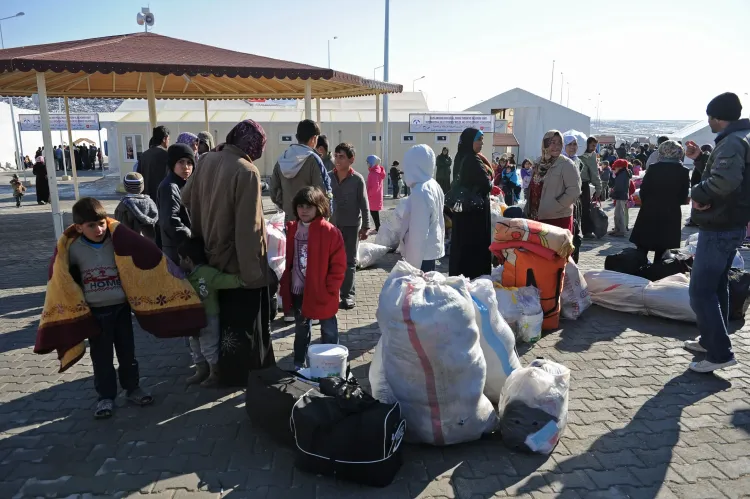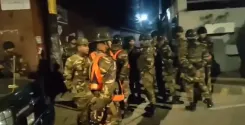The Dilemma Facing Syrian Refugees in Turkey: To Return or Stay

Ankara, Dec 20 (NationPress) "I have a homeland today to return to, I belong there." At 25, Islam Al-Masri's life has been defined by displacement due to Syria's civil conflict. Now that Bashar al-Assad's regime has fallen, he has made the choice to return home.
"I want to be there when Syria is reconstructed," the young single individual expressed to Xinhua news agency in Turkey's capital, Ankara, where he has lived since 2015.
In the turmoil that has plagued Syria for over a decade, his family abandoned their residence in Syria's Mediterranean coastal region of Tartous and eventually sought refuge in Turkey.
During his time away, al-Masri mentioned that he had to recreate his life in a new country, learning a different culture and language. "Millions of Syrians were displaced because of the civil war, but times have changed," he remarked.
With the situation evolving, Islam is keen to go back to his native land.
"There are many fellow Syrians in Turkey who are planning to return in the coming months," al-Masri stated. Once he arrives, "in a couple of months," he plans to start a food delivery venture.
However, not all of the millions of Syrian refugees in Turkey share his eagerness to return immediately. Many, like Ibrahim Assani, feel conflicted about leaving behind the lives they have painstakingly built in Turkey for a country still facing uncertainties.
"I don't know what awaits us there. Aleppo has been destroyed," said Ibrahim Assani, a car mechanic who moved to Turkey in 2015 with his wife and two children from this significant northern city.
Struggling between the life he has established in Turkey and the longing for his homeland, Ibrahim finds himself in a challenging situation.
"My children go to school here, and I don't want to disrupt their studies for an uncertain future," he shared with Xinhua, elaborating on his decision to remain in Turkey until next summer to observe how conditions in Syria progress.
For many Syrian families who have spent years in Turkey, they have established firm roots. Their children attend Turkish educational institutions, and although their lives are precarious, they have developed a sense of normalcy.
Nevertheless, significant challenges endure. Many refugees are employed in unregistered positions, earning inadequate wages and lacking access to social security. Their futures remain uncertain, closely linked to Turkey's economic and political landscape, which is often unwelcoming to their presence, especially as Turkey contends with high inflation and unemployment.
Metin Corabatir, the head of the Research Centre on Asylum and Migration in Ankara, emphasized the complexities facing the refugees.
"Thousands have already returned home, but I don't expect a mass return," he explained.
"Many are in a wait-and-see mode. If stability and order are restored, I believe a majority will eventually choose to return within a year," Corabatir added.
Abdullah Al-Hassan, an insurance worker in Gaziantep, a southern border city that is home to Turkey's largest Syrian refugee community of 430,000, recognizes his own uncertainty.
"We don't want to remain guests in Turkey forever, but we must face realities. It is too early," Abdullah commented.










